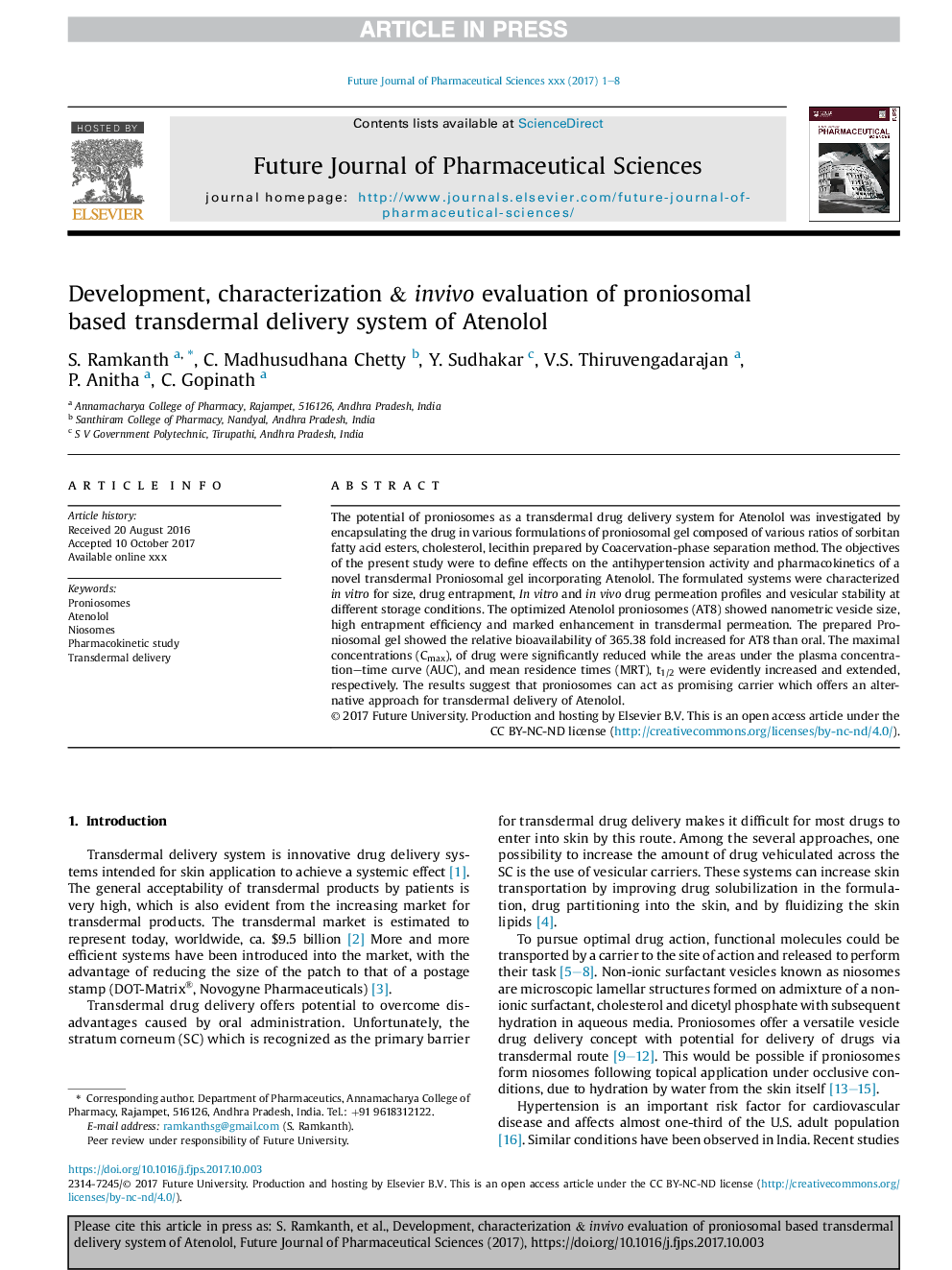| کد مقاله | کد نشریه | سال انتشار | مقاله انگلیسی | نسخه تمام متن |
|---|---|---|---|---|
| 8519457 | 1556888 | 2018 | 8 صفحه PDF | دانلود رایگان |
عنوان انگلیسی مقاله ISI
Development, characterization & invivo evaluation of proniosomal based transdermal delivery system of Atenolol
دانلود مقاله + سفارش ترجمه
دانلود مقاله ISI انگلیسی
رایگان برای ایرانیان
کلمات کلیدی
موضوعات مرتبط
علوم پزشکی و سلامت
داروسازی، سم شناسی و علوم دارویی
علوم دارویی
پیش نمایش صفحه اول مقاله

چکیده انگلیسی
The potential of proniosomes as a transdermal drug delivery system for Atenolol was investigated by encapsulating the drug in various formulations of proniosomal gel composed of various ratios of sorbitan fatty acid esters, cholesterol, lecithin prepared by Coacervation-phase separation method. The objectives of the present study were to define effects on the antihypertension activity and pharmacokinetics of a novel transdermal Proniosomal gel incorporating Atenolol. The formulated systems were characterized in vitro for size, drug entrapment, In vitro and in vivo drug permeation profiles and vesicular stability at different storage conditions. The optimized Atenolol proniosomes (AT8) showed nanometric vesicle size, high entrapment efficiency and marked enhancement in transdermal permeation. The prepared Proniosomal gel showed the relative bioavailability of 365.38 fold increased for AT8 than oral. The maximal concentrations (Cmax), of drug were significantly reduced while the areas under the plasma concentration-time curve (AUC), and mean residence times (MRT), t1/2 were evidently increased and extended, respectively. The results suggest that proniosomes can act as promising carrier which offers an alternative approach for transdermal delivery of Atenolol.
ناشر
Database: Elsevier - ScienceDirect (ساینس دایرکت)
Journal: Future Journal of Pharmaceutical Sciences - Volume 4, Issue 1, June 2018, Pages 80-87
Journal: Future Journal of Pharmaceutical Sciences - Volume 4, Issue 1, June 2018, Pages 80-87
نویسندگان
S. Ramkanth, C. Madhusudhana Chetty, Y. Sudhakar, V.S. Thiruvengadarajan, P. Anitha, C. Gopinath,